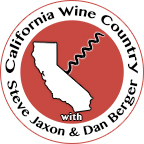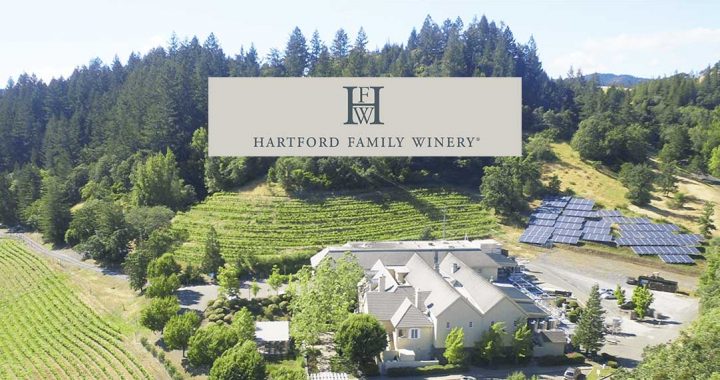Podcast: Play in new window | Download (Duration: 35:40 — 16.5MB) | Embed
Subscribe: Apple Podcasts | RSS | More
Pete Foppiano is sitting in for Steve Jaxon today on California Wine Country, but Dan Berger is in the studio as usual and his guest is Haley Jackson Hartford Murray from Hartford Family Winery. Barry Herbst from Bottle Barn is also in today.
The Hartford was established as a winery by Jess Jackson in 1994. It is in Forestville in a remote area of Russian River Valley. Dan calls it the most ideal winery on the planet because they have every gadget for making great Chardonnay and Pinot Noir. A lot of people don’t know that it is part of the Jackson family of wines.
Her grandfather is Jess Jackson who approached her parents in 1994 with the idea of making wine in Russian River Valley, mostly Chardonnay and Pinot Noir and at first they also had some old vine Zinfandel.
Dan Berger’s cellar dweller bottle today is a Merlot from Freemark Abbey 2008, this is a Jackson Family affiliated winery. The winemaker is Ted Edwards, Dan has known him for 40 years. Ted is great at getting the best of his varietals. Dan says a good quality Merlot deserves to have 5-7 years and this one has close to 13 years old yet it is just beginning to show. This illustrates the greatness of Merlot and of Freemark Abbey.
Dan considers Hartford to be one of the greatest wineries in Sonoma County that nobody has ever heard of. Barry Herbst says that Bottle Barn cutomers sure do know it. Pete says it’s a “hidden gem” among wineries.
Today they will taste some of Hartford’s single vineyard wines, starting with the Chardonnay. They do also make some Russian River Valley blends, which they have more of, for retail sale in places like Bottle Barn.
The majority of their 30 single vineyard wines are their own estate, so they farm them and manage them. They also have some neighbors who provide fruit to them. This came from Dutton Ranch. Most of them have only a few hundred cases made. The location is cool, the fog rolls in first and stays low. The wine has floral delicacy. Dan is getting pineapple and guava, plus a mystery floral flavor, maybe peach or nectarine, towards honeysuckle and jasmine. Here the acid level may be higher than usual, which may be driven by climate change.
Dan Berger on Climate Change
“We are reaching a point now in California where global climate change is becoming an issue and the winemakers are really solving the problem. I think they’re doing a brilliant job. All over California we’re finding Chardonnay to be better because it’s more savory. This wine is pretty tart.”
Pete asks what steps have been taken to address climate issues. Dan says harvest date is critical. If you have to vary your harvest date and adjust that year to year. Also, you have to do your work in the vineyard early in the season. You can’t allow the crop level to get too large or too small. That means from the moment you’re pruning, late January early February, you’re making sure that what’s on the vine is going to give you the right amount of fruit in 7 months. Keep that in balance and the wine will be balanced.
Haley points out that all of their vineyards and wineries are certified sustainable, meaning that they meet specific criteria to use less water, conserve as much as possible, to monitor soil health, biodiversity in the vineyards. They want the vineyards to be healthy ecosystems. They were lucky in the recent fires, although the fire was very close.
These special single vineyard wines are available through the Hartford website. The other line of Russian River Valley blends (Chard and Pinot Noir) are at Bottle Barn.
“This Chardonnay has got real personality.” It’s the Seascape Vineyard Chardonnay. The site is right on the ridge, and it gets the first fog. It has flavors of lemon, lime and citrus. Tasting from the barrels, “you’re in Margaritaville.”
Dan Berger describes other changes that climate change has brought to the wine industry. It is not a problem for people who are sensitive to growing grapes in cooler regions for fine wine, because cold is your friend. In cooler regions, if you know your vines, you know exactly where they’re headed and you can manage your harvest time and adjust to conditions. Some people growing cool climate wines in areas that are getting hotter, such as Cabernet vineyards in Paso Robles, may be in trouble in 10 years when temperatures get too high.
They taste the Marin County Pinot Noir. It was an old dairy farm and they planted vines in the higher, rockier areas. Dan and Barry call it Burgundian and detect a trace of thyme, and Haley also tastes blackberries.


